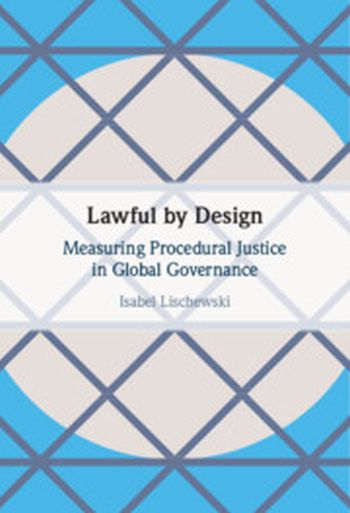
In recent years, the procedural rules of global governance institutions have come under scrutiny from scholars worldwide and have been conceptualized as akin to domestic administrative law. However, one question has so far not been addressed: who shapes this procedure and why? In the present work, Isabel Lischewski develops a simple matrix connecting procedure and state interest. When this matrix is applied to a sample of forty diverse institutions, fascinating patterns emerge, which are further explored through in-depth case studies. It is shown that states prefer to balance sovereignty preservation through procedure with the costs it entails. Thus, normative considerations are not the predominant basis on which this procedure is designed. The research provides original insights into the landscape of global governance procedure and cautions against a notion of “apolitical” administration law.